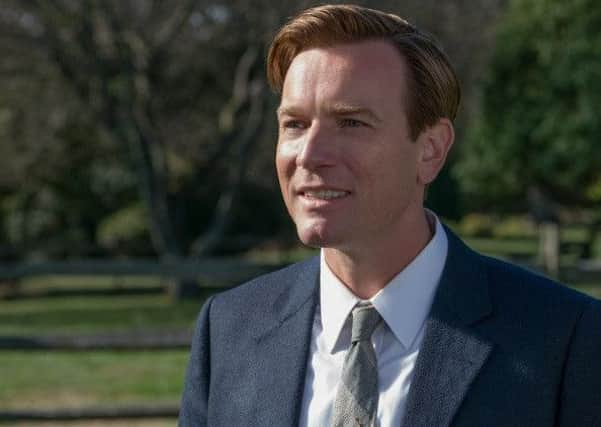Film review: American Pastoral


American Pastoral **
Directed by: Ewan McGregor
Starring: Ewan McGregor, Jennifer Connolly, Dakota Fanning, David Strathairn
Though McGregor signed on as a star first and only took on directorial duties after Philip Noyce dropped out, his insistence on playing the book’s protagonist, Seymour “Swede” Levov is one of its biggest liabilities. Granted, Swede – with his Nordic features and background as a high-school athlete – is supposed to be an anomaly among his Jewish peers, but the book is also about how appearances are deceptive, so while McGregor – with his own genetic lottery win – is good at playing someone for whom life seems to come easily, he’s not quite as good at simultaneously conveying the character’s hidden depths — what Roth described as “a gruesome inner life of tyrannical obsessions”.
Advertisement
Hide AdSwede’s secret torment stems from his relationship with his daughter, Merry, a stuttering, manipulative daddy’s girl turned narcissistic teen radical whose anti-everything stance forces her into hiding after blowing up the local post-office to protest the Vietnam War. Much of the subsequent film is focused on Swede’s relentless efforts to track down Merry (played with typical assurance by Dakota Fanning) while attempting — in the face of tumultuous historical forces — to hold on to his idealistic life as a liberal bourgeois factory owner who prides himself on his racially diverse employment record and his marriage to an ex-beauty queen (Jennifer Connolly).
That’s a lot of stuff to get through, and consequently McGregor’s handling of it ends up very superficial, ticking off scenes from the book and using the hoariest of cultural signifiers – newsreel footage of civil unrest, Buffalo Springfield on the soundtrack – to try and capture the feel of the times. That isn’t to say there’s not craft and competence on display too; it’s watchable enough. But nobody – least of all McGregor – would have settled for Trainspotting being made such a pedestrian manner, so why cut him slack for doing so with an American classic?